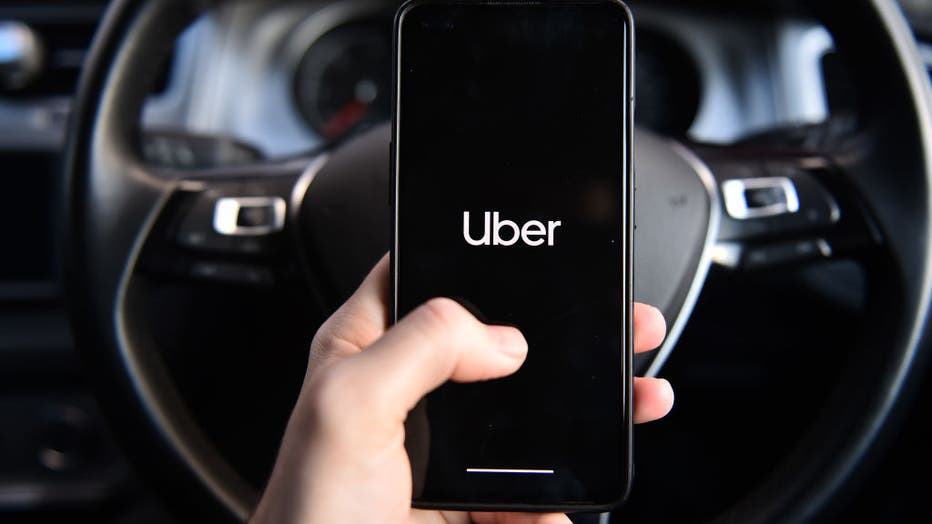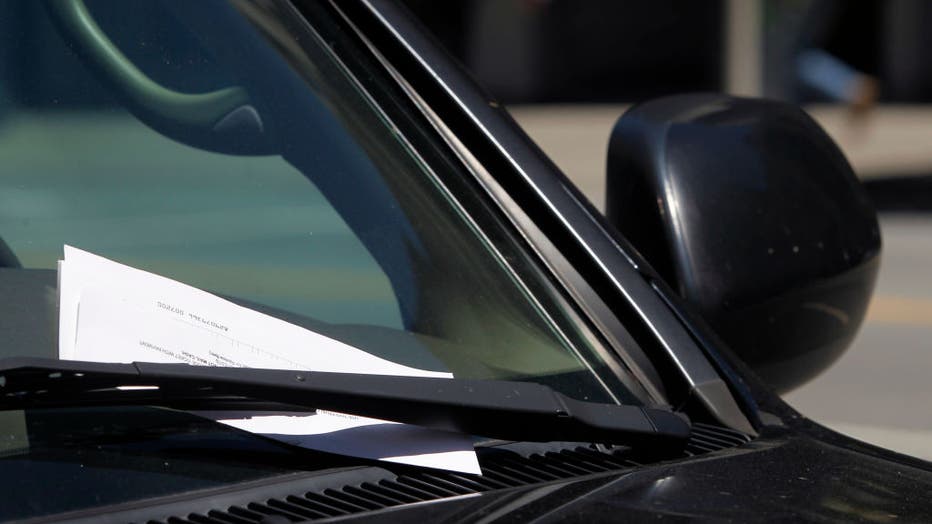New 2025 WA laws include minimum wage increase, expanded paid sick leave

New WA laws going into effect on January 1
Several new laws in Washington state will go into effect in 2025, impacting general workers and health care.
WASHINGTON - Several new laws in Washington state will go into effect in 2025, impacting general workers and health care.
Key changes include stronger protection for health care workers, such as a ban on mandatory overtime in certain settings, expanded rights for app-based workers and a new paid sick leave law. Fines for covered license plates will take effect in 2025, alongside increased penalties for negligent drivers and a rise in the state’s minimum wage.
Keep reading to learn more about the new laws going into effect in Washington in January 2025, and how they may impact you.
Washington's new negligent driving law and what it means
Beginning Jan. 1, Washington state will increase penalties and fines for drivers who cause serious injuries or fatalities to pedestrians due to negligent driving.
The Washington Traffic Safety Commission reports a significant rise in traffic fatalities involving vulnerable road users. The WTSC defines a vulnerable road user as anyone traveling on Washington’s roads or sidewalks who is not protected by the steel frame of a vehicle.
Who is considered a vulnerable road user?
A vulnerable road user includes pedestrians, bicyclists, scooter riders, wheelchair users, skateboarders, horseback riders, moped operators, motorcyclists and even those driving farm equipment such as tractors. Essentially, any individual who does not have the protective structure of a vehicle is considered a vulnerable road user.
What constitutes negligent driving?
Negligent driving refers to actions that put others at risk on the road. According to the WTSC, it occurs when a driver fails to exercise ordinary care while operating a vehicle. A negligent driver is someone who:
- Fails to take reasonable precautions.
- Engages in actions that a careful driver would not do.
- Fails to perform actions that a careful driver would do.
- Puts people or property in potential danger.
What are the consequences of negligent driving in WA?
Starting Jan. 1, drivers who cause serious harm or death to a vulnerable road user will face severe penalties, including substantial fines and jail time.
First-degree negligent driving with a vulnerable user victim
This applies when a negligent driver causes the death of a pedestrian or other vulnerable road user. Penalties include the following:
- Up to 364 days in jail.
- A fine of up to $5,000.
- A 90-day driver’s license suspension.
Second-degree negligent driving with a vulnerable user victim
This law applies when a negligent driver causes significant bodily injury to a vulnerable road user. Penalties include the following:
- A $5,000 fine.
- A 90-day driver’s license suspension.
- Up to 100 hours of community service.
- Enrollment in traffic safety education.
New law requires increased distance from southern resident orcas
A new law effective Jan. 1, 2025 will require boaters stay 1,000+ yards away from southern resident killer whales.
According to the Washington Department of Fish and Wildlife, the new law applies to operators of motorized vessels, as well as non-motorized vessels and paddlecraft like kayaks and paddleboards. Under the law, all watercraft operators must:
- Stay 1,000 yards away from SRKW in all directions.
- If SRKW approach within 400 yards of the vessel, disengage the transmission, luff sails, or stop paddling (if it is safe to do so) until the animal moves away.
- 1,000 yards is approximately one-half nautical mile. Boaters who think they may be closer than 1,000 yards to SRKW, but not within 400 yards, should attempt to navigate out of the path and away from SRKW at a speed of 7 knots or less."
It's recommended that if you encounter orcas while on the water and aren't sure what type of orcas they are that you should treat them as southern residents and give them 1,000+ yard distance from your vessel.
WA's new paid sick leave law takes effect in 2025
Washington's new paid sick leave law (SB 5793) takes effect on Jan. 1, and means that workers, including drivers for transportation companies, will have access to paid sick leave and will be protected from discrimination or retaliation when exercising their rights. Here's a more in-depth breakdown:
Paid sick leave for employees
Employers must provide at least one hour of paid sick leave for every 40 hours worked. Employees can use this leave for personal or family illness, medical treatment, preventive care or in emergencies like school or business closures.
The leave is available after 90 days of employment and can be carried over, up to 40 hours annually. Employers must also maintain transparency regarding the sick leave balance.
Paid Family and Medical Leave premiums to increase in 2025
Starting Jan. 1, the Washington Paid Leave premium rate will increase due to higher demand.
The new rate will be 0.92%, up from 0.74% in 2024. Employers will cover 28.48% of the premium, while employees will pay 71.52%, similar to the current split.
Estimate your paid leave payments at this website.
Verification and reimbursement
For absences over three days, employers may ask for verification, but it must not cause undue burden. Employers are not required to pay out unused sick leave when an employee leaves, except for certain construction workers. Rehired employees within 12 months will have their unused leave reinstated.
Transportation network drivers (Uber, Lyft)
New paid sick leave rules will apply to drivers of companies like Uber or Lyft. They must accrue one hour of paid sick leave for every 40 hours worked, with the same eligibility requirements.
The compensation for sick leave will be based on average hourly earnings. Drivers can also carry over up to 40 hours of unused sick leave, and must have an accessible system to request it. Drivers will also be protected from retaliation for using sick leave.
WA's new law for app-based workers goes into effect in 2025
Seattle Council Bill No. 120580 goes into effect on Jan. 1, and aims to ensure fairness and transparency in how app-based workers in Seattle are treated by companies, especially regarding deactivation that can impact their livelihoods. Here's a more in-depth breakdown:

A phone is held displaying the Uber app on Dec. 10, 2021.
Deactivation protection
The law requires network companies (those using algorithms to manage app-based workers) to have clear and reasonable policies for deactivating workers. These policies must be related to safe and efficient operations.
Notification of deactivation
Workers must receive a NOD 14 days before being deactivated, unless there's egregious misconduct. In such cases, the NOD will be provided on the same day as the deactivation.
Investigation and evidence
Before deactivating a worker, companies must conduct an investigation with evidence supporting the decision. The deactivation must be proportionate, consistent and non-discriminatory.
Challenge process
Workers can challenge their deactivation within 90 days of receiving the NOD. Companies must respond to the challenge within 14 days and provide a written statement about their decision. If the challenge is unresolved, the worker can file a complaint with the Office of Labor Standards or pursue legal action.
Access to records
Workers are entitled to the records used to justify their deactivation. Any new evidence discovered after the NOD must also be shared with the worker.
Eligibility and coverage
The law covers companies with 250 or more workers who perform services in Seattle. Workers are covered if they have completed at least 10% of their tasks within the city in the last 180 days.
Enforcement and costs
The OLS will enforce the ordinance. Initial implementation costs are estimated at $1 million annually for staffing, outreach, and translation services.
Impact on vulnerable workers
The law is designed to address disparities faced by historically disadvantaged communities, particularly Black and Latino workers. The notice of rights must be provided in the workers' primary language.
A new WA license plate law is coming in 2025
Starting January 1, having a cover over your license plate will result in a fine.
Since June 2024, the law has stated violators will only be given a written warning, with information about the law and further penalties that will begin in 2025.

A parking ticket is left on a car parked at an expired meter. (Photo By Paul Chinn/The San Francisco Chronicle via Getty Images)
Seattle parking ticket prices increasing in 2025
The cost of a parking violation in Seattle is set to increase nearly 50% starting on Jan. 1, 2025.
According to Seattle Municipal Court (SMC), this is the first time the city of Seattle has increased parking fines since 2011.
According to the Seattle Municipal Court (SMC), beginning on Jan. 1, 2025, parking fines in the city will range from $43 to $78.
Before 2025, the price range for a parking fine in Seattle was between $29 and $53.
SMC says that the new fine amounts are closely aligned with current parking rates and account for inflation.
Health care workers to adopt new smoke evacuation systems law in 2025
Some lifesaving surgical procedures require lasers, radio frequency devices and power tools, which can create smoke harmful to surgical staff. Substitute House Bill 1779, effective Jan. 1, requires health care employers in Washington to adopt policies requiring the use of smoke evacuation systems during these procedures.
The systems must capture and neutralize smoke before it contacts the eyes or respiratory tract of anyone in the operating room. The law applies to hospitals and ambulatory surgical centers and allows flexibility in choosing the type of system.

Surgeons at The Queen Elizabeth Hospital Birmingham conduct an operation on June 14, 2006, in Birmingham, England. (Christopher Furlong/Getty Images)
Hospitals must select a smoke evacuation system based on surgical needs and safety considerations. Compliance will be monitored through inspections by the Department of Labor and Industries. Certain hospitals, including critical access hospitals and those with fewer than 25 beds, will have until Jan. 1, to comply with the requirements.
To support this change, a reimbursement program has been established for eligible hospitals to receive up to $1,000 per operating room for the purchase of smoke evacuation systems. Hospitals must apply to L&I for reimbursement, with funds limited to the amount available in the state’s surgical smoke evacuation account.
WA to prohibit mandatory overtime for health care workers in 2025
Starting Jan. 1, hospitals in Washington will be prohibited from mandating overtime for certain health care workers under a new law.
This policy, issued by L&I in June, restricts mandatory overtime for hospital employees directly involved in patient care, including nurses, surgical technicians and other clinical staff. The law applies to workers who are paid hourly or covered by a collective bargaining agreement.
While most hospitals must comply by January, smaller hospitals and critical access facilities have until July 1. Contract and travel staff are not covered under the new rules.
The law allows for four exceptions where overtime may still be required: in emergency situations, during pre-scheduled on-call time, when staffing shortages occur despite reasonable efforts, and when overtime is necessary to complete a patient care procedure.
Hospitals must document their efforts to avoid overtime; non-compliance may result in civil penalties. Employees can file complaints with L&I, which will investigate violations. Penalties for violations could reach up to $5,000 per infraction.
Hospitals are advised to review their policies and engage legal counsel to ensure compliance.
WA's minimum wage to increase in 2025
Beginning Jan. 1, the minimum wage in Washington state will go up to $16.66 per hour, up 2.35% from 2024.
WA's new college tuition guarantee for low-income students in 2026
Washington state’s new law, House Bill 2214, will guarantee free college tuition to low-income students starting in the 2025-26 academic year. The law automatically qualifies students in grades 10 through 12 who receive Basic Food or Food Assistance Program benefits for the Washington College Grant (WCG), the state’s largest financial aid program.
The Washington Student Achievement Council (WSAC) will certify eligibility and notify students to submit FAFSA or WASFA applications, which could qualify them for additional aid. The WCG provides grants based on income, covering tuition at state-approved colleges and apprenticeship programs.

WA to guarantee college for low-income families
Washington state will guarantee free college tuition to low-income students next year. The law was passed by the legislature last spring.
MORE NEWS FROM FOX 13 SEATTLE
Fired Seattle police chief Diaz denies affair allegations, calls investigation flawed
Mysterious drones spotted in Tacoma, WA
TikTok to be removed from US app stores
35 dogs, 18 cats, 1 horse removed from property in Roy, WA
10 things you must know about WA's T&T Supermarket
WA driver pulled over for having Christmas lights taped on car
To get the best local news, weather and sports in Seattle for free, sign up for the daily FOX Seattle Newsletter.
Download the free FOX LOCAL app for mobile in the Apple App Store or Google Play Store for live Seattle news, top stories, weather updates and more local and national coverage, plus 24/7 livestreams from across the nation.


